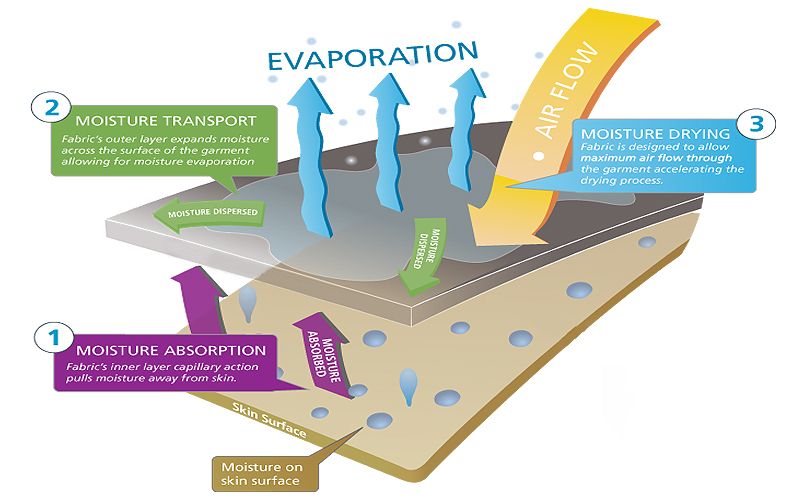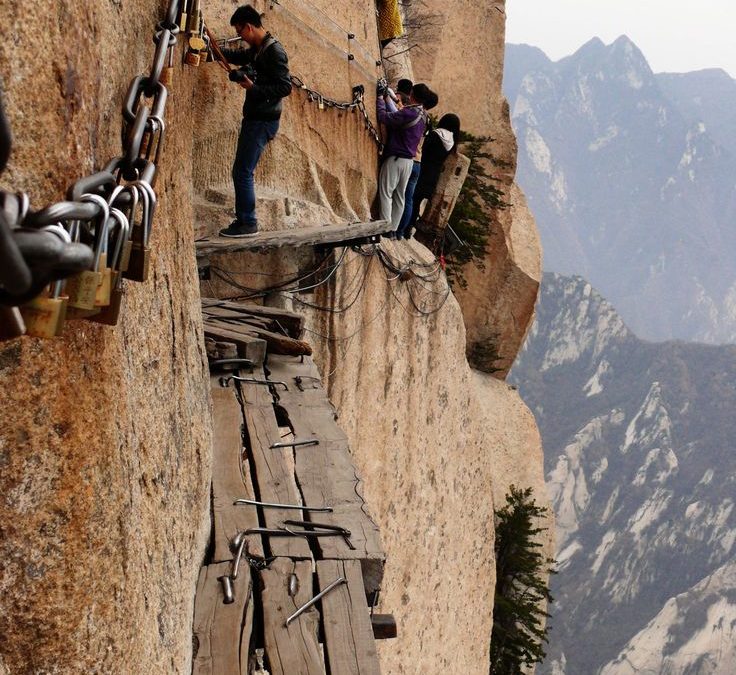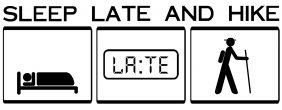Tutorials
How to hike in the sun
Hiking in a Larger Group in a Fun and Safe Way
Our Code of Conduct
Our Dog Policy
How to hike in the sun
By Kal A., Sleep Late and Hike, Organizer
The most challenging hike for me was 110F for 12 Miles coming out of the Grand Canyon with a full 50 pound backpack.
I carried 4.5 liters of water. I drank all my water and the two bottles I had back in the car. I also carried many electrolyte packs.
What to consider when hiking in the sun:
Water
Water is the most important. While most hikes in an 8 Mile range, 1600 feet and 80 F can be completed with about 2 liters of water, when any of these three parameters change more water is needed. Add a 1000 feet and add 1 liter of water. Add 10 Miles and add 1 liter of water. Add 15 F degrees and add 1 liter of water. When you are half out of water most of the uphill and distance should be behind you.
RULE: If most of the uphill or distance is still in front of you and you are half out of water TURN BACK. You have achieved your personal best today. Congratuate yourself !!! You can always comeback and improve on your personal best the next time on a cooler day, with more preparation, and conditioning on your personal best journey.
Keep extra bottles of water in your car and out of direct sunlight. It is always great to drink a bottle of water when you get back to your car, before driving off. And, it a great morale boost to know that there is water waiting for you in your car.
Electrolytes
If you find yourself on a hot day feeling dizzy, nauseated, or shaking while hiking it is most likely due to low electrolytes. When you sweat, you don’t just sweat water but also electroytes such as salt. This why your skin tastes salty after sweating. You need not only replace the water you lost by sweating, but also the salt and other electrolytes. Your brain cells use salt to communicate, this is why you feel dizzy when low on salt.
[button link=”https://www.amazon.com/gp/product/B072JTN71M/ref=as_li_tl?ie=UTF8&tag=sleeplateandh-20&camp=1789&creative=9325&linkCode=as2&creativeASIN=B072JTN71M&linkId=df8614d76167c821a5b1f42f2f233cf6″ newwindow=”yes”] Buy From Amazon[/button]
Shade For Your Head
When hiking in the sun, it is important to consider where the major heat sources on your body are located. For example, when standing still 80% of your calories are consumed by your brain. Calories burned translates into heat produced. 80% of the heat produced while standing is from your brain. Now add that heat to the heat being produced by the sun on your head, and it becomes clear that the head is the most important part of the your body that must be kept cool. If your head is cool, you will feel comfortable. If your head is overheating, you will feel very uncomfortable.
As someone who has completed hundreds of hikes in the hot sun, hiking with and without a sun hat makes the difference between a pleasurable hike and a very miserable hike.
How to pick the right hat
When picking out a Sun Hat look for something that keeps the sun off your chin, nose, ears and neck. Also, it should have some ventilation on the sides of the head for wind to blow through the top of your head. Women may also look for a hole at the back for a ponytail.
Recommendations for women
My Ponytail Pick
[button link=”https://www.amazon.com/gp/product/B07RSZJY64/ref=as_li_tl?ie=UTF8&tag=sleeplateandh-20&camp=1789&creative=9325&linkCode=as2&creativeASIN=B07RSZJY64&linkId=df8614d76167c821a5b1f42f2f233cf6″ newwindow=”yes”] Buy From Amazon[/button]
My Pick for Full Face Coverage with detachable face and neck cover
[button link=”https://www.amazon.com/gp/product/B01ELYG2AC/ref=as_li_tl?ie=UTF8&tag=sleeplateandh-20&camp=1789&creative=9325&linkCode=as2&creativeASIN=B01ELYG2AC&linkId=df8614d76167c821a5b1f42f2f233cf6″ newwindow=”yes”] Buy From Amazon[/button]
My Unisex Pick
[button link=”https://www.amazon.com/gp/product/B0151A6UQQ/ref=as_li_tl?ie=UTF8&tag=sleeplateandh-20&camp=1789&creative=9325&linkCode=as2&creativeASIN=B0151A6UQQ&linkId=df8614d76167c821a5b1f42f2f233cf6″ newwindow=”yes”] Buy From Amazon[/button]
Recommendations for men
My Pick for Neck Coverage
[button link=”https://www.amazon.com/gp/product/B07CV6NJLJ/ref=as_li_tl?ie=UTF8&tag=sleeplateandh-20&camp=1789&creative=9325&linkCode=as2&creativeASIN=B07CV6NJLJ&linkId=df8614d76167c821a5b1f42f2f233cf6″ newwindow=”yes”] Buy From Amazon[/button]
My Pick for Full Face Coverage with detachable face and neck cover
[button link=”https://www.amazon.com/gp/product/B01FLSJGH8/ref=as_li_tl?ie=UTF8&tag=sleeplateandh-20&camp=1789&creative=9325&linkCode=as2&creativeASIN=B01FLSJGH8&linkId=df8614d76167c821a5b1f42f2f233cf6″ newwindow=”yes”] Buy From Amazon[/button]
My Unisex Pick
[button link=”https://www.amazon.com/gp/product/B0151A6UQQ/ref=as_li_tl?ie=UTF8&tag=sleeplateandh-20&camp=1789&creative=9325&linkCode=as2&creativeASIN=B0151A6UQQ&linkId=df8614d76167c821a5b1f42f2f233cf6″ newwindow=”yes”] Buy From Amazon[/button]
Shade For Upper Body
We have all experienced the hot and stuffy feeling of a 100% cotton shirt on a hot day, and would never consider a long sleeve cotton shirt on a very hot day. But, the same cannot be said for the latest polyester fabrics that provide wicking.

Wicking fabrics are modern technical fabrics which draw moisture away from the body. They are made of high-tech polyester, which, unlike cotton, absorbs very little water. Cotton will absorb 7% of its weight in water, polyester only 0.4%. Cotton will therefore hang onto your sweat, making your garment heavy and unpleasantly clammy. Wicking polyester has a special cross-section and a large surface area, which picks up moisture and carries it away from your body, spreading it out, to evaporate easily on the outside of the fabric. So you stay cool and dry.
Some people will refer to wicking fabrics as being breathable – that is, they let air in and sweat out. You’ll see a lot written on garment labels about wicking properties, but read what they are telling you and it often amounts to no more than ‘this fabric moves moisture away from your body’.
The two properties normally used to predict wicking performance in a fabric are capillary pressure and permeability.
Capillary pressure is the main force responsible for the movement of moisture along or through a fabric, where the force of the surface tension between the liquid and the walls of a narrow gap or pore overcome the forces between the molecules of the liquid, moving it into empty gaps until the forces even out. Permeability is the measure of a fabric’s ability to transport moisture through itself, and is determined by a combination of sizes of spaces within it and the connections between the spaces.
Other properties that certainly do effect the wicking properties of a fabric include yarn twist (how threads in the fabric turn around each other), contact angle (between the fibre and the liquid), knit or weave (the larger scale construction of the fabric), yarn roughness and a whole lot more.
The shirt that I wear has wicking and anti-odor properties, and is rated UFP 50+ by the Skin Cancer Foundation.
My Wicking Shirt for Men in many colors
[button link=”https://www.amazon.com/gp/product/B00F9LLVHQ/ref=as_li_tl?ie=UTF8&tag=sleeplateandh-20&camp=1789&creative=9325&linkCode=as2&creativeASIN=B00F9LLVHQ&linkId=df8614d76167c821a5b1f42f2f233cf6″ newwindow=”yes”] Buy From Amazon[/button]
My Wicking Shirt for Women in many colors
[button link=”https://www.amazon.com/gp/product/B00G2COHTU/ref=as_li_tl?ie=UTF8&tag=sleeplateandh-20&camp=1789&creative=9325&linkCode=as2&creativeASIN=B00G2COHTU&linkId=df8614d76167c821a5b1f42f2f233cf6″ newwindow=”yes”] Buy From Amazon[/button]
Hiking in a Larger Group in a Fun and Safe Way
“I can’t imagine how more than two people could possibly hike together and Leave No Trace Behind”
Here is how we do it.

Our larger hike Organization
Overall organization
We have about one hike leader for about every 15 to 25 hikers. By having so many leaders per hike it allows us to organize hikes in a more fun and safe manner. After a few minutes of hiking, our hikers will spread out as they find the leader that best suits their pace. This allows horses, bikers and other hikers in the park to easily pass. Hike leaders will assist the passage of other park users in a courteous and friendly manner.
Hike Leader Organization
Each Hike Leader has responsibilities that may not be found in other hiking groups:
- Hike leaders are picked based on their different hiking paces. Slower hike leaders will be closer to the end of the group, and faster hike leaders will be closer to the front of the group.
- At the end of the group is a special hike leader known as the Scoop. The Scoop will ensure that no hiker is left behind. The Scoop will count all the hikers at the beginning and keep track of any hikers who decide to quit.
Each hike leader carries:
- A printed official park map with the planned route traced out on the map. This helps match trail names on the map to signs along the trail.
- A whistle to alert hikers who have taken the wrong path to come back.
- A first-aid kit. Each leader has also completed a course and is certified in First-Aid and CPR.
- A GPS with a built-in radio with the planned route downloaded into the GPS unit’s permanent memory. Our job is to stay on the purple line (planned route) at all times. The built-in radio sends out our position to the other hike leaders so we can all know where the entire group is at all times.
- A GPS with a built-in radio is also used to communicate with the other leaders in case there is any doubt on the hike about which way to turn. What you see on the map is not always what you get on the trail. Sometimes trail signs are confusing or missing. Also, the radio allows us to change plans in real-time due to unexpected conditions such a certain trail is impassible or closed.
Hiker Responsibilities:
Each Hiker has responsibilities that may not be found in other hiking groups:
- Hikers will carry at least 1.5 liters of water, or more if the event requires it.
- Hikers will eat a good breakfast, or quickly lose steam during the hike.
- Fasting will lead to your death on the hike. The internet is wrong. We have deep near death experience on this. Fasting people are forbidden. No exceptions.
- Hikers can hike at their own pace as long as they can keep a hike leader in their sight.
- Hikers are free to move between hiker leaders at any time during the hike.
- At a trail intersection, if a hiker cannot see which way a leader went, then they are to just wait a few minutes for the next hike leader to pass by.
Our Smaller Hike Organization
Our smaller hikes require less organization to make it safe and fun.
Overall organization
We have one hike leader at the front. And, one Scoop at the back.
- At the end of the group is a special hike leader known as the Scoop. The Scoop will ensure that no hiker is left behind. The Scoop will count all the hikers at the beginning and keep track of any hikers who decide to quit.
Hike Leader Organization:
Each hike leader carries:
- A printed official park map with the planned route traced out on the map. This helps match trail names on the map to signs along the trail.
- A radio to communicate with the Scoop in case there is any doubt on the hike about which way to turn. What you see on the map is not always what you get on the trail. Sometimes trail signs are confusing or missing. Also, the radio allows us to change plans in real-time due to unexpected conditions such a certain trail is impassible or closed.
- A whistle to alert hikers who have taken the wrong path to come back.
- A GPS unit when on unfamiliar terrain.
Hiker Responsibilities:
- Hikers will carry at least 1.5 liters of water, or more if the event requires it.
- Hikers will eat a good breakfast, or quickly lose steam during the hike.
- Fasting will lead to your death on the hike. The internet is wrong. We have deep near death experience on this. Fasting people are forbidden. No exceptions.
- Hikers will move together as a group.
- At a trail intersection, the hike leader will stop for the group to catch up.
Carpool Etiquette:
Carpooling is not for everyone.
Everyone who is in the carpool must agree to a slower paced sightseeing plan, or to do extra miles, BEFORE anyone gets into the car. This is regardless of whether there is a leader in the carpool or not.
It is NOT majority rule. Everyone must agree.
You cannot hold the carpool driver/riders hostage because you changed your mind after starting, or did not share your plan. All people who agree to a plan must be in the same car.
Any decision (or, non-decision) that you make that significantly extends your arrival time back at the car, must be communicated in advance of making that decision and agreed upon by everyone in the carpool.
You must adhere to the original hike plan and hike with the group if you fail speak to everyone in your carpool and get agreement.
Please be considerate of your carpool members at all times.
Right of Way
All parks have rules that require all hikers and cyclists to yield to horses (where allowed), and cyclists (where allowed) to yield to hikers. We follow all such right of way rules.
In addition, each leader will:
- Ensure all hikers hike on the right side of wider trails to allow the passage of horses, cyclists and other hikers.
- Yield to horses.
- Make room for cyclists when possible on narrow single track trails without putting anyone’s safety or the environment at risk.
- Ensure the safe passage of hikers across roads with vehicle traffic.
Hiker Safety and Conduct
We require permits for many of our hikes due to our size. We are only able to get our permits approved if we can assure the park authorities that we have done everything possible to deter poor behaviors and encourage good behaviors.
Outdoor environments are fragile and special care needs to be taken to ensure that they are protected:
- Do not do anything illegal or do anything against park/trail rules.
- Stay on the marked trails at all times. Off-trail wilderness scars easily and can take years to recover.
- Always listen to safety rules and event agendas provided by trip leaders.
- Do not hike alone and generally stay with the group.
- Please drive only on the roads provided; vehicles can damage vegetation.
- Fire can cause devastating losses. Please don’t throw cigarette butts down. There is no smoking during our hikes. The lighting of fires is strictly forbidden except in the designated areas at the parks or hiking areas.
- Please do not litter. There is no one to clean up after you.
- To protect our environment we would appreciate if a policy of “whatever you bring in – you take out” was followed. This includes orange peels, and egg shells. If you don’t like what you are eating, do not spit it out on the trial. If you don’t like it, swallow it.
- It is illegal to pick any plant, or to disturb or kill any animal or to remove or disfigure any biological, archaeological or geological material.
- Picking of berries is not permitted. The berries are there for the animals that live there, not you.
- Hikers taking deliberate and obvious short cuts when hiking could speed up erosion and damage wilderness. This is a punishable offense at many parks and you are asked to remain on the paths.
Our Code of Conduct

Sleep Late and Hike Code of Conduct
Sleep Late and Hike (SLH) is a hiking and outdoor group, and we realize that meeting new friends with like interests is one of the main reasons you’ve decided to join. However, respect for other people and respect for trails and the environment must never be taken lightly.
We require permits for many of our hikes due to our size. We are only able to get our permits approved if we can assure the park authorities that we have done everything possible to deter poor behaviors and encourage good behaviors.
We’ve developed this Code of Conduct to address some of the behaviors that will not be tolerated at our events, with people you meet at our events, and on the Web sites associated with SLH.
SLH takes the well-being of our members and our stellar reputation with the park authorities very seriously. By using the SLH Web site (whether or not you choose to become a member) and attending any events organized by SLH, you agree to accept this Code of Conduct. To the extent there is any inconsistency between the Terms of Service and this Code of Conduct, the Terms of Service shall take precedence.
You agree that we may modify terms of this agreement from time to time at our sole discretion, which we will do by updating this document. If you do not agree with the terms below, you should stop using our site and attending our events immediately.
Outdoor Event Safety and Conduct
Outdoor environments are fragile and special care needs to be taken to ensure that they are protected:
- Do not do anything illegal or do anything against park/trail rules.
- Stay on the marked trails at all times. Off-trail wilderness scars easily and can take years to recover.
- Always listen to safety rules and event agendas provided by trip leaders.
- Do not hike alone and generally stay with the group.
- Please drive only on the roads provided; vehicles can damage vegetation.
- Fire can cause devastating losses. Please don’t throw cigarette butts down. There is no smoking during our hikes. The lighting of fires is strictly forbidden except in the designated areas at the parks or hiking areas.
- Please do not litter. There is no one to clean up after you. We will Practice: No Trace Left Behind
To protect our environment we would appreciate if a policy of “whatever you bring in – you take out” was followed. This includes orange peels, and egg shells. If you don’t like what you are eating, do not spit it out on the trial. If you don’t like it, swallow it. - It is illegal to pick any plant, or to disturb or kill any animal or to remove or disfigure any biological, archaeological or geological material. Picking of berries is not permitted. The berries are there for the animals that live there, not you.
- Hikers taking deliberate and obvious short cuts when hiking could speed up erosion and damage wilderness. This is a punishable offense at many parks and you are asked to remain on the paths.
Physical and verbal Harassment
Grabbing, or touching another members private areas such a butt, genital area, or chest of females is strictly prohibited and will result in immediate removal from the group. Simulating such behavior is also prohibited.
Being ‘touchy’ or “grabby” in general will also result in immediate removal.
Being told to keep your distance, or told not to touch, and refusing to do so will also result in your immediate removal.
Repeatedly making sexual gestures, profane gestures or lewd comments.
Being told to or not do anything by an Organizer and continuing to do similar behavior will result in your immediate removal.
Online Safety and Conduct
To help reduce the creep factor, we suggest that members only contact people they’ve already met at an event or already know in real life. That includes e-mails, greetings on the Web site, and the like. Once you’ve made a mutual connection with someone at an event, take it from there!
The exceptions to this would be:
- Communication from SLH trip leaders
- Focused member-to-member communication on the logistics or carpool around an event.
At all times:
- You will show courtesy and good will towards other members and users online and offline.
- You will not post content that is offensive to our community, such as photos, videos, messages, or events that promote racism, bigotry, hatred or physical harm of any kind against any group or individual.
- You will not harass or advocate harassment of another person.
- Harassment such as by sending inappropriate messages or posting inappropriate comments. Harassment also includes unwanted contact of any kind after the recipient said “No” to further contact. Excessive messages where the recipient does not respond is also harassment. Harassment includes, but is not limited to, sending messages through this site, as well as contact in person at one of our events.
- You will not distribute or disseminate inappropriate, unauthorized or unsolicited advertising or promotional offers including, but not limited to, spam, contests, sweepstakes, barter, junk mail, chain letters, and pyramid schemes.
- You will not invade privacy by attempting to collect, store, or publish private or personally identifiable information, including, but not limited to, password, account information, email, credit card number, address, or other contact information.
- You will not use the site to obtain personally identifiable information, or to solicit, sell, or promote to any member inappropriately.
- You will not impersonate another member, celebrity, or otherwise falsely represent yourself.
- You will not copy or reuse other members’ content, such as their photos or videos, without their permission.
- You will not create “trolling” posts (deliberately posting false or provocative information in order to elicit responses from people who would not respond if they knew the motivation behind the post).
- You risk being removed from the group by doing anything illegal.
Administrative Review
We will review and may act immediately upon any complaints from our members. We reserve the right to remove any member at any time, with or without warning. We reserve the right to investigate and take appropriate legal action, in our sole discretion, against anyone who violates these terms.
Our Dog Policy

Due large group size, we cannot accommodate free running dogs, or retractable leashes, thus no dogs allowed.
This includes retractable leashes with length locks, as we all know the locks can be removed at anytime, with owners arguing the correct length should be greater than 6 feet.
Many parks require a fixed 6 foot leash, and not a retractable leash with a lock for this very reason. The 6 foot rule is set by the park, not left to the dog owner’s discretion which is effectively no rule.
All dog owners so far have refused to use 6 foot fixed leashes 100% of the time and stay 6 feet from other hikers, instead advocating “dog freedom”. Or, agreeing to, but unleashing the dog soon after starting the hike.
I have seen hikers get tangled up in retractable leashes many times. Also, I slipped and almost fell to my death on a single track trail due to a free running dog when I stepped on the leash, with the owner nowhere in sight. This was after the owner had been told twice to keep the dog on a leash and hold the leash.
We are a hiker first, second and last group, and not a dog first group.
On narrow single track trails one misstep can mean death for a hiker.
So dogs are not allowed for hiker safety.
Forced into being the dog owner police is not an enjoyable hike for any hike leader. Hike leaders also want to have a fun stress free experience.
No exceptions.
Return to the top.








